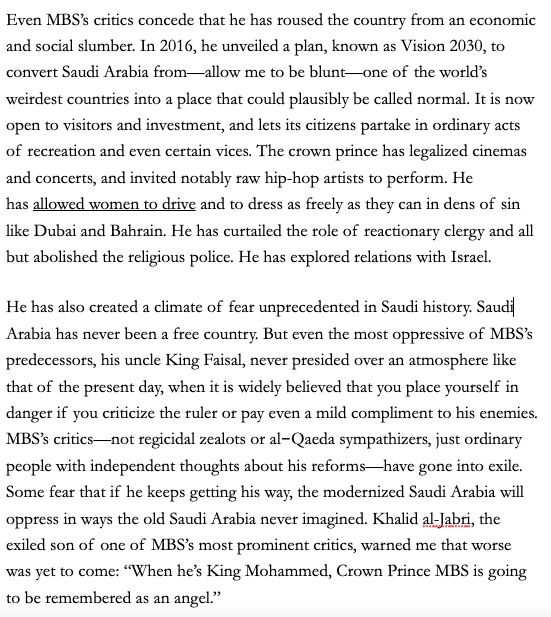
Staff writer, @TheAtlantic. Lecturer, @Yale political science. Formerly: @newrepublic, @DeutschePostDHL
2 subscribers
How to get URL link on X (Twitter) App

https://twitter.com/SonnyBunch/status/1558117856621084673To the world's already marginalized, embattled, and victimized Muslim population, shaped by the legacy of colonialism, The Satanic Verses must be seen as being intended to cause further humiliation and suffering....


https://twitter.com/KarenAttiah/status/1500828213886529550The charge of "whitewashing" is ludicrous, as the piece itself demonstrates. theatlantic.com/magazine/archi… It opens thusly:



https://twitter.com/asymmetricinfo/status/1448271270525734920Yale says that it would not seek to report this incident as a character demerit when the student seeks bar admission. (If Yale did so, that would be the most alarming development from this episode—which is still very embarrassing.)
https://twitter.com/DavidLat/status/1448373149335236623